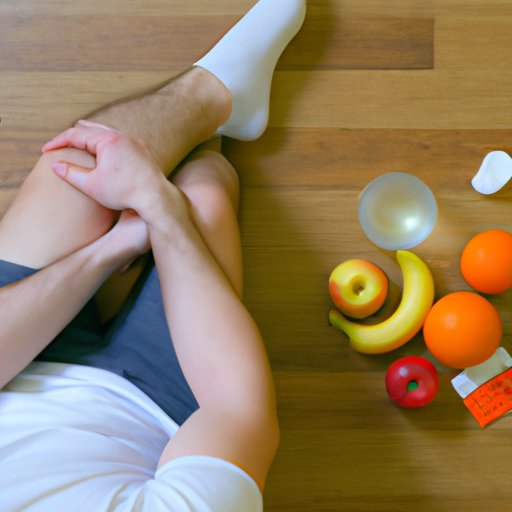
Introduction
Muscle cramps are sudden and intense muscle contractions that can be incredibly painful and debilitating, impacting both physical activity and daily life. Whether you’re an athlete, a fitness enthusiast, or simply someone who experiences muscle cramps occasionally, it’s essential to understand what causes these cramps and how to prevent them.
This article aims at providing you with techniques and strategies to prevent muscle cramps. Whether you’re new to exercise or a seasoned athlete, these tips can help you avoid the discomfort and disruption of muscle cramps.
Understanding Muscle Cramps
Muscle cramps occur when muscle fibers contract and don’t release, causing sudden and involuntary pain. They can occur in any muscle, but they are most common in the legs, feet, and back muscles.
Some common causes of muscle cramps include dehydration, nutrient deficiency, and muscle fatigue. Dehydration can lead to an electrolyte imbalance, which can cause muscles to contract and cramp. Nutrient deficiency, especially deficiency in potassium, magnesium, and calcium, can also contribute to muscle cramps. Lastly, muscle fatigue can cause muscle fibers to contract easily and may lead to cramping.
Hydration
One of the primary ways to prevent muscle cramps is by staying hydrated. It’s recommended to drink a minimum of eight glasses of water per day to stay hydrated and prevent muscle cramps. Additionally, drinking fluids before, during, and after exercise prevents dehydration, which can lead to muscle cramps.
Stretching
Stretching before and after physical activity can prevent muscle cramps. Dynamic stretches such as walking lunges, arm circles or side bends can be done before exercising to warm up the muscles and prevent cramps. Static stretches like forward folds or quadriceps stretches can be done after working out to increase flexibility and help muscle recovery.
Proper Nutrition
Eating a balanced diet can reduce the frequency of muscle cramps. It’s necessary to consume foods that are rich in potassium, magnesium, and calcium. Some examples of potassium-rich foods include avocados, bananas, and sweet potatoes. Spinach, nuts, and seeds are rich in magnesium, while milk, cheese, and yogurt provide you with calcium, which helps contract muscles and prevents cramps. You should also avoid foods that may dehydrate you, such as alcohol, caffeine, and sugary drinks.
Warming Up
Warming up before physical activity is essential for preventing muscle cramps. Warming up increases heart rate, blood flow, and oxygen supply to the muscles. You can perform exercises such as light jogging, jumping jacks, or arm swings for five to ten minutes before starting any intense workout. Doing this increases the body’s temperature and helps to prevent muscle cramps.
Strengthening Exercises
Strengthening the muscles with exercises like squats and lunges can help prevent muscle cramps. Strengthening exercises will keep muscle fibers healthy and improve muscle endurance, making them less prone to cramping. It’s recommended that a strength-training regimen includes exercises that work all major muscle groups.
Rest & Recovery
Rest and recovery after exercise are crucial for preventing muscle cramps. Experts recommended that you allow your muscles to recover properly before engaging in the same activity again. You can rest for a day or two after intense exercise and practice foam rolling, stretching, and massage to speed up your recovery. Additionally, giving yourself regular breaks and getting adequate sleep are crucial in reducing the risk of muscle cramps.
Conclusion
Muscle cramps can be avoided by implementing proper techniques and strategies. By staying hydrated, stretching, maintaining a nutritious diet, warming up, strengthening muscles, rest, and recovery, you can avoid the pain and discomfort of muscle cramps and improve your overall fitness and health.





